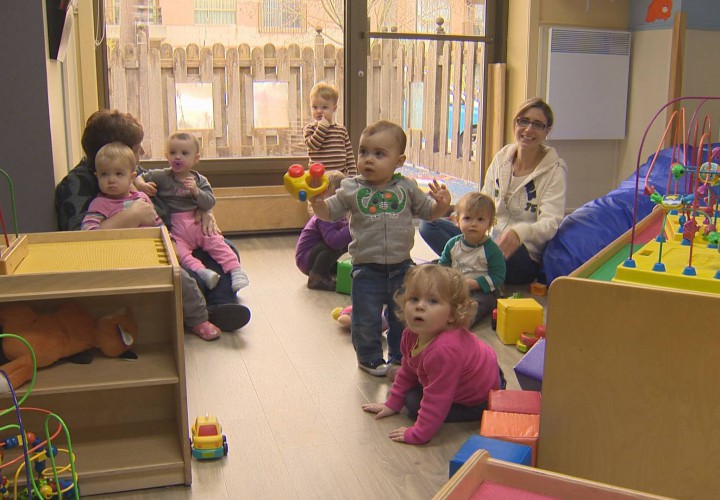The introduction of pre-primary school in Nova Scotia could lead to a disjointed start to the school system for kids with autism according to an advocacy group.

Autism Nova Scotia says the timing of pre-primary and another crucial program for kids with autism called Early Intensive Behavioural Intervention (EIBI) need to match up in order for the programs to be fully accessible. The treatment program helps kids on the autism spectrum develop communication and social skills.
Last week the province rolled out its highly anticipated pre-primary program for 43 schools starting in late September. While staff still need to be hired for the program, 440 families pre-registered within a day of the program being available.
“EIBI is very important to our families, as are opportunities like pre-primary,” executive director Cynthia Carroll said in an interview. “We certainly want to be supportive but want to also ensure that there’s a continuum of services for our families to navigate.”
READ MORE: Nova Scotia to offer free pre-primary care at 43 locations
The early intervention program is provided by the health department. Carroll said it’s a key treatment for children, but delays in offering the program mean it’s often only available when a child is four or five. The delays are sometimes due to long waits for the program.
For example, since April 2016 the IWK says 84 children have started EIBI in the health authority’s central zone. They waited anywhere from a few months for the service to three years. The children’s hospital says 52 children waited less than one year, 16 waited between one and two years to get the treatment and another 16 children waited between two and three years for the program.
She said the services risk becoming disjointed because while children can attend pre-primary and get the EIBI treatment at the same time, the same isn’t true when children move into primary school.
The EIBI program can start any time during the year, so unless it starts before pre-primary or at the same time, Carroll said families could be forced to choose between dropping out of the program early in order for their kids to stay in the same class as their peers, miss a year between pre-primary and primary, or delay starting pre-primary by a year.
Currently she said many children start school a year late, attending EIBI around age five and then starting primary school around age six.
READ MORE: Nova Scotia pre-primary program gets mixed response
Asked whether the government would ensure the health and education programs don’t lead to conflicts, a statement from the education department highlighted that the pre-primary program is voluntary.
“Pre-primary will have no impact on a child’s ability to access programs such as EIBI. Pre-primary is a voluntary program. Parents can choose whether they enroll their children,” said a statement from spokesperson Heather Fairbairn.
“It would be a matter of parental choice if they opt to enroll their child in pre-primary at age four or if they choose to wait until age five. Pre-primary is for one year only and is an inclusive program. Children with special needs will continue to have access to community-based services and supports while they are in the pre-primary program.
“The pre-primary program is a play-based program which, like child care settings, is an appropriate environment for EIBI. Access is available to younger children if there are no five-year-olds on the wait list.”
Autism Nova Scotia said it wants to see the health and education departments work together so that children with autism aren’t put at a disadvantage.
READ MORE: Nova Scotia pre-primary program may further disadvantage students with autism: Advocates
“Accessibility for children with special needs in the pre-primary program is really one that still needs to be watched closely,” Carroll said. “So how many families are able to access the pre-primary program with special needs.”
She said her organization is “cautiously optimistic” that the implementation of pre-primary will benefit all children, but she said the true test of it will come once children are in the new classrooms.




Comments